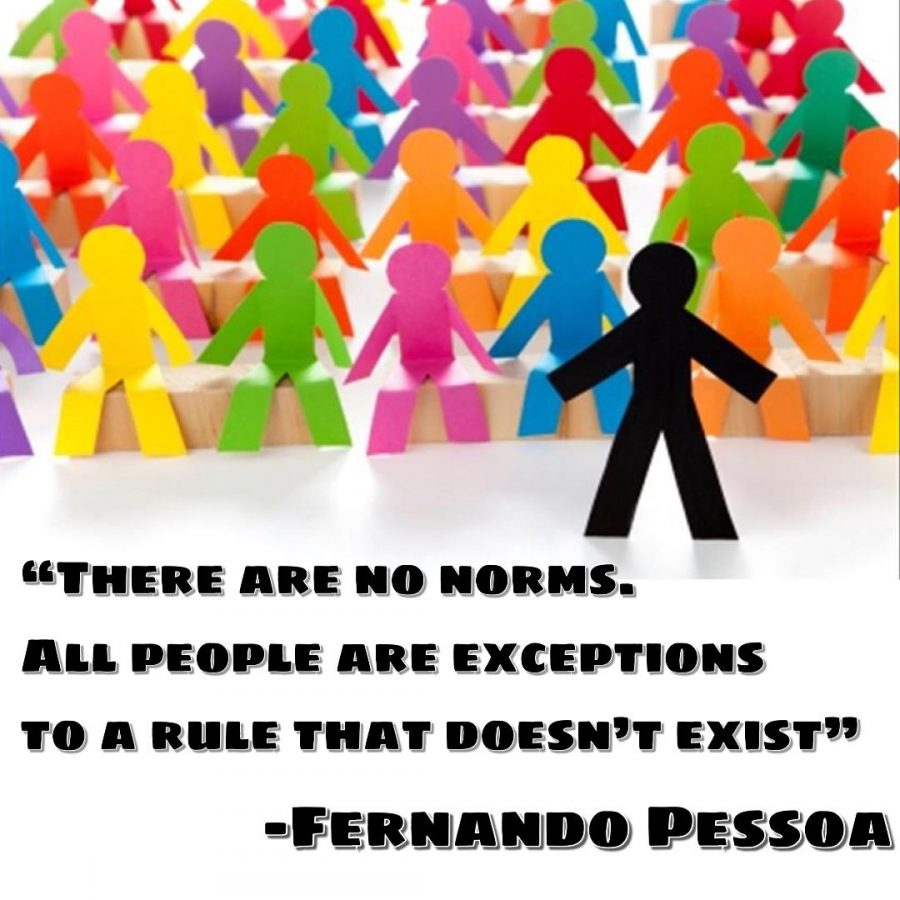Society’s opinions on “normality” affect student personality and behavior
February 23, 2018
Once society accepts a person, he or she, as an individual, seems to fade away into the crowd just like a game of Tetris, but not all of the pieces may “fall into place.” However, unlike the game, an outlier does not have to disrupt the flow of society. Just like the colorful blocks, people possess different colors, gifts, and talents, and eventually, they find a place to belong.
Among teenagers today many ideas, beliefs, judgments, and influences affect one’s personality and perspectives. When these ideas become common among larger groups of people, they are considered “normal.”
However, when someone sticks out from a crowd or just doesn’t quite seem to blend in, this often leads to insecurity and self questioning.
One might ask themselves, “Why am I not like this person?” or “How can I be like them?”
Not many realize that these thoughts are all connected to an atypical question: “Am I normal?” As strange as the question sounds, the concept of normality in people is indeed difficult, or nearly impossible to define. What is normal anyway? What does a ‘normal’ person look like? What traits do they have? What are their interests? Some people may believe in the different kinds of normality while others believe that no “normal” exists at all.
Teenagers often fall under the pressure to consider other people’s impressions and thoughts of them. And these notions of who or what is “normal” are a major factor of why students often try to meet these certain standards instead of being who they want to be.
When such a diverse society exists in this world, it’s impossible to define a single type of person as “normal” because no two people are exactly the same.
Everyone in this world has their own individual opinions, personalities, and ways of life. Setting “basic” standards of a certain gender, sexuality, race, or age only divides society more and causes conflict between others and within ourselves. The Greatest Showman is a perfect example of how society should thrive. The movie brings forward the celebration of differences and being unique.
The big picture that most people seem to miss is that a true concept of “normal” does not exist. Notions of normality and abnormality simply corrupt the mind with insecurity and uncertainty. Society, and especially teens, need to realize that whatever standards they attempt to meet in order to fit in do not define their true persona. People should not try to morph themselves into someone that society considers “normal,” but aim to stand out and radiate in their own special, one-of-a-kind way.

